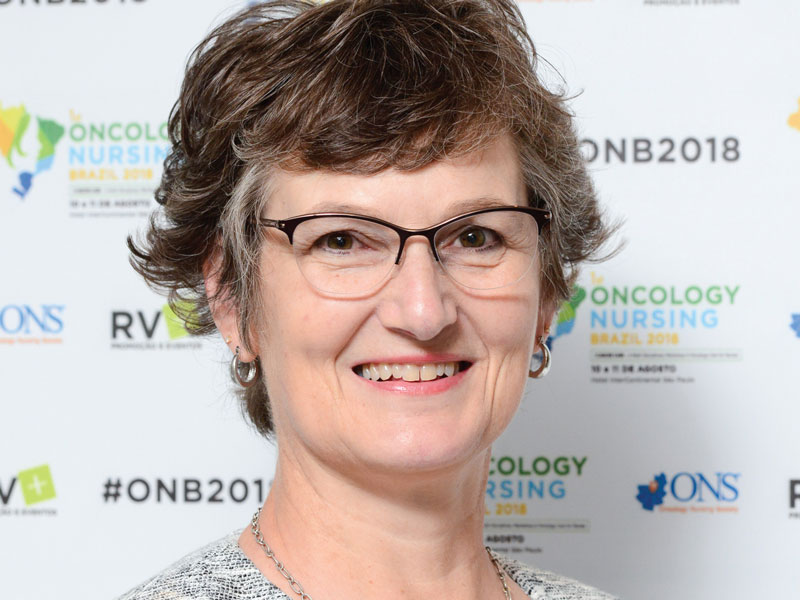Liquid Biopsy Equivalent to Tissue for NSCLC

With faster and equally accurate results, liquid biopsy may be an option for identifying guideline-recommended targeted therapies for non-small cell lung cancer (NSCLC), according to findings presented at the 2019 American Association for Cancer Research Annual Meeting in Atlanta, GA.
What USP Means for Safe Oncology Nursing Practice

Nurses in oncology who compound hazardous drugs may be familiar with the U.S. Pharmacopeial Convention (USP) because of chapter <795> related to compounding nonsterile medications and chapter <797> addressing compounding sterile medications. But what is USP really, and why does it have an impact on oncology nursing practice?
Opioid, Cancer, AIDS, and Biomedical Research Are Fiscal Year 2020 Budget Request Priorities

Each year, federal agency leaders submit their budget proposals to the U.S. Congress for review. Often, the committee of jurisdiction will request formal testimony from an agency, which provides an opportunity for the department to speak directly to the elected officials who have the authority to fund programs and projects of interest.
- Read more about Opioid, Cancer, AIDS, and Biomedical Research Are Fiscal Year 2020 Budget Request Priorities
- Add new comment
New Genetics Service Delivery Models Help Patients Access Genetic Counseling

As genetic and genomic testing become more common—and complex—in cancer diagnosis and treatment decisions, more efficient and accessible ways of providing comprehensive genetic care are needed. In their article in the February 2019 issue of the Clinical Journal of Oncology Nursing, Pierle and Mahon discussed the findings from their literature review, specifically pertaining to genetics care services across the cancer continuum, patient and system barriers to accessing care, new service delivery models, and oncology nurses’ role in providing comprehensive cancer genetics care services.
- Read more about New Genetics Service Delivery Models Help Patients Access Genetic Counseling
- Add new comment
Health Disparities Are a Focus for NIH Cancer Awareness and Prevention Promotions

The National Institutes of Health’s (NIH’s) mission is to enhance health and reduce illness throughout the country. Cancer, as the second leading cause of death in the United States, tops the list of diseases on which NIH is focused. Understanding the impact of health disparities, NIH has effectively widened its reach to touch more underserved communities with new prevention efforts.
- Read more about Health Disparities Are a Focus for NIH Cancer Awareness and Prevention Promotions
- Add new comment
FDA Approves Ado-Trastuzumab Emtansine for Early Breast Cancer

On May 3, 2019, the U.S. Food and Drug Administration (FDA) approved ado-trastuzumab emtansine (Kakcyla®) for the adjuvant treatment of patients with HER2-positive early breast cancer (EBC) who have residual invasive disease after neoadjuvant taxane and trastuzumab-based treatment.
Bipartisan Drug Legislation; Curbing Youth Smoking; Nurses Back Medicare for All

Trying to find a path forward is a common theme among elected officials in Washington, DC, and drug pricing appears to be a bipartisan initiative. In that vein, Senator Chuck Grassley (R-IA)— working with representatives from both sides of the aisle—announced his plan to release a drug pricing proposal by the beginning of summer 2019.
- Read more about Bipartisan Drug Legislation; Curbing Youth Smoking; Nurses Back Medicare for All
- Add new comment
FDA Approves Ivosidenib as First-Line Treatment for AML With IDH1 Mutation

On May 2, 2019, the U.S. Food and Drug Administration (FDA) approved ivosidenib (Tibsovo®) for newly-diagnosed acute myeloid leukemia (AML) with a susceptible IDH1 mutation, as detected by an FDA-approved test, in patients who are at least 75 years old or who have comorbidities that preclude the use of intensive induction chemotherapy.
- Read more about FDA Approves Ivosidenib as First-Line Treatment for AML With IDH1 Mutation
- Add new comment
What Does the Research Say About Oncology Nursing Certification?

To measure the value of oncology nursing certification, scientists must look at the intrinsic, qualitative outcomes associated with nurses achieving certification in practice. The research for oncology nursing certification has largely focused on perceived benefits for nurses, their colleagues, and their institutions. Data suggest that certified oncology nurses feel validated in their knowledge, report personal satisfaction for undertaking and completing the certification process, and say that it enhanced their professional credibility.
Stay Up to Date on Clinical Treatments for Metastatic CRC

Metastatic colorectal cancer (CRC) remains a significant health problem as the second leading cause of cancer death in the United States and the fourth most frequently diagnosed cancer. Despite improvements in some age groups, its incidence has actually been increasing in patients younger than 50 years. The cause of this trend is currently unknown.





